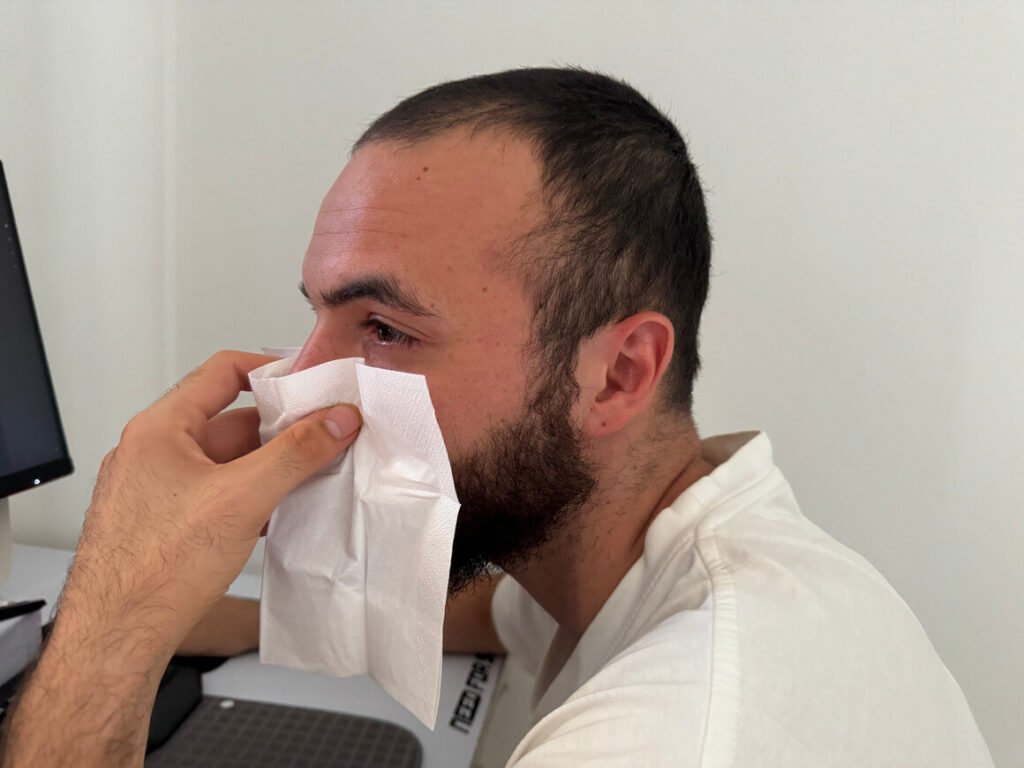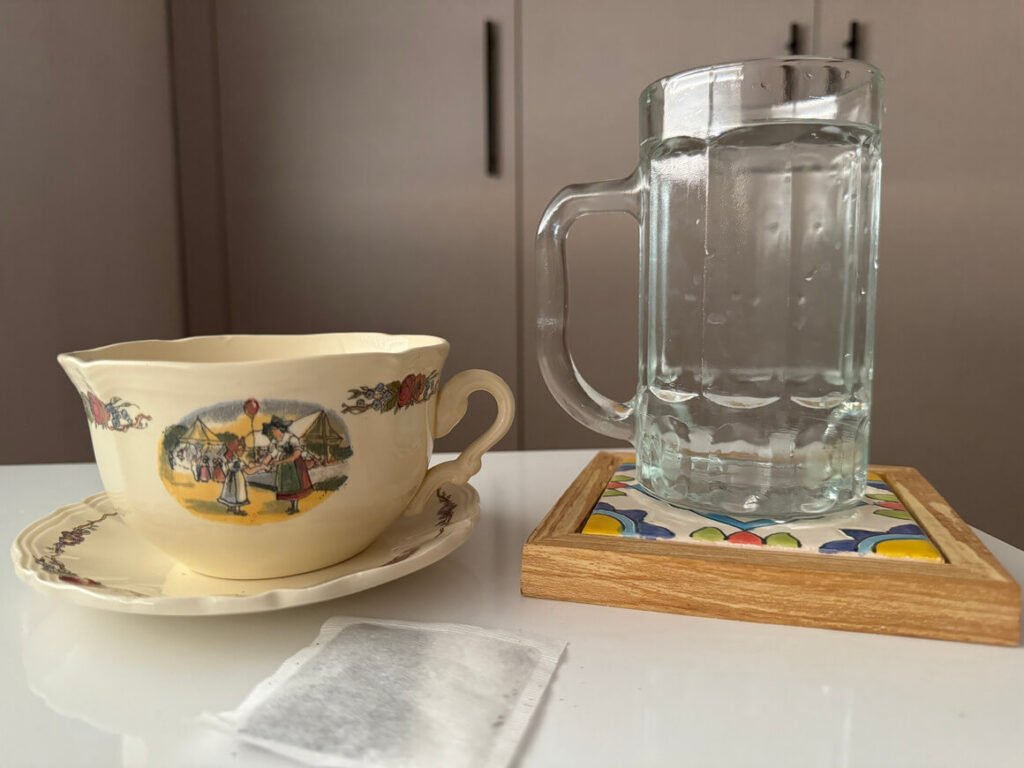Sinus infections are more than just facial pressure and nasal congestion.
Many patients seek medical help because they feel their sinus issues are impairing their cognitive abilities and interactions with their surroundings.
One of the lesser-known symptoms of sinus infection is brain fog, which can significantly impact cognitive functions.
This may explain why 11% of US adults diagnosed with sinusitis report feeling less mentally sharp and agile than before.
In this article, I’ll explain how brain fog is connected to your sinus infection and what you can do about it.

Image: oumaima.haded
What is Brain Fog?
Brain fog is some type of cognitive dysfunction that doesn’t precisely identify as a medical condition but rather a symptom linked to a state of mental cloudiness and confusion.
People who experience brain fog report difficulty paying attention, increased distractibility, and longer reaction times. It feels as if their brain isn’t as sharp and clear as usual.
If you experience these symptoms, you may be suffering from brain fog.
- Decreased productivity
- Difficulty to concentrate
- Memory problems
- Fuzzy thoughts
- Feeling confused
Can a Sinus Infection Cause Brain Fog?
Sinus infection can indeed be connected to brain fog.
A 2024 study published in the International Forum of Allergy and Rhinology found that patients with chronic sinusitis reported more cognitive dysfunction and showed impairment on cognitive tests compared to healthy controls.
Understanding the connection between sinus infection and brain fog is key to managing the condition effectively.
What Happens When You Have a Sinus Infection?
Behind your sinusitis symptoms lies sinus inflammation and issues with mucus drainage.
When you catch a bacterial infection, experience allergies, or inhale dust, smoke, or pollen, the lining of your sinuses—connected to your nasal passages—can become swollen or inflamed.

Image: oumaima.haded
This swelling blocks the natural flow of mucus, which is essential for keeping your sinuses hydrated and free from allergens and microorganisms.
Fluids build up in the sinuses, causing congestion, facial pressure, and sometimes a throbbing sensation behind your forehead, nose, and between your eyes.
What Caused My Sinus Infection?
Many causes could be behind your sinus infection. This includes:
- Blocked nasal passages which cause bacteria and germs growth
- Allergies
- Viral infections
- Bacterial infections
- Fungal infections (especially in people with weakened immune systems)
Why Does My Brain Feel Foggy When I Have Sinusitis?
Sinus inflammation can trigger a cascade of events that impact cognitive processing ultimately contributing to the experience of brain fog.
Body’s Immune Response:
Your body is naturally in a fighting mode, it’s trying to resist the inflammation which leads to increased release of immune cells and signaling molecules including cytokine.
Elevated levels of pro-inflammatory cytokines – proteins released by the immune system that promote inflammation – can affect the brain leading to cognitive impairments and brain fog.
Poor Oxygen Flow:
If you have blocked sinuses, the air you breathe won’t flow properly.
There will be a lack in the natural oxygen supply which can affect cognitive functions that need oxygens to be in action, eventually causing brain fog.
Also, because of congestion, you may be sometimes breathing from your mouth so your brain would have a hard time concentrating due to poor oxygen flow.

Altered Brain Activity
New scientific evidence links sinusitis to alterations in brain activity as a potential basis for cognitive dysfunction witnessed in patients with sinusitis.
Brain scans have revealed :
- Subjective feelings of attention decline
- Difficulties to focus
- Sleep disturbances
Kristina Simonyan, Professor of Otolaryngology-Head and Neck Surgery at Harvard Medical School and director of Laryngology Research, Mass Eye and Ear says that these subjective feelings that a person with sinus inflammation experiences “might be associated with subtle changes in how brain regions controlling these functions communicate with one another.”
Medications
Review your medication information leaflets; you may discover potential side effects that contribute to brain fog.
Some over-the-counter medications can cause drowsiness, restlessness, disrupted sleep, and concentration problems.
There are tons of natural ways to get rid of sinus infection without antibiotics. If you suspect any medication is causing brain fog, consult your doctor for alternative solutions.
Sleep disturbances
I understand the challenge of trying to find a comfortable sleeping position amidst sinusitis pressure and discomfort, which often worsens when lying down.
It becomes especially difficult when your nostrils are blocked, forcing you to breathe through your mouth.
This disruption can lead to irregular sleep patterns.
Since the brain requires adequate and uninterrupted sleep for optimal function, sleep disturbances caused by sinusitis can impact concentration, memory, and overall mental clarity, and contribute to brain fog.
How to Treat Sinus Infection Brain Fog?
I’ve navigated a challenging journey with sinus infections and discovered the benefits of natural healing processes.
Embracing holistic treatments was pivotal in my sinus infection healing journey.
These approaches consider the interconnectedness of the body, mind, and environment, enabling simultaneous relief from sinus congestion and brain fog.
Here’s everything you need to know about maintaining a healthy sinus, brain, body, and environment.

Image: oumaima.haded
Embrace Holistic Healing
During my healing journey, I’ve found that holistic treatment for sinus infection is an effective solution to integrate your life and encompass healing for your sinuses, body, mind, and soul.
I advise you to take it step by step and slowly work on incorporating these healthy practices into your daily routine.
Try Nasal Irrigation
Sinusitis fog begins in your sinuses!
Try gently rinsing your nasal passages by spraying a saline solution into one nostril, allowing it to run off the other nostril.
This is a simple and non-invasive technique that can bring back that relief and freshness you’ve been missing.
Keep Hydrated
This is a step you won’t skip, here’s why :
- Hydration helps thin the trapped mucus and clear sinus passages
- It improves oxygenation which supports cognitive function and helps alleviate brain fog
- Drinking fluids supports the body’s processes to eliminate waste efficiently which reduces the burden on the immune system and promotes its activity

Image: oumaima.haded
Stick to a Healthy Diet
Embracing a holistic approach where you focus on enhancing physical, emotional, and social wellbeing, could be a jump towards a healthier sinus and clearer and sharper brain.
Stick to a healthy and balanced diet rich in nutrients, antioxidants, anti-inflammatory and immunity-boosting foods. And, hydrate, again!
Manage Stress
Stress and sinusitis hinder brain function. Here’s what you should do to alleviate the pressure:
- Give your brain a break and prioritize deep rest to facilitate recovery.
- Avoid stressful situations and aim for calmness and mindfulness.
- Engage in light exercise or take walks in nature regularly.
- Foster healthy social connections with family and friends to strengthen emotional support and well-being.
Stay in a Healthy and Allergen-free Environment
A clean environment is crucial for your sinus’s health. Remember that your sinus condition strongly depends on the quality of the air you breathe. Here are practices to help keep an allergen-free environment.

Clean Air
The quality of the air you breathe has the biggest impact on your sinuses’ health.
Manage your environment to avoid allergens by:
- Filtering indoor air using an air purifier
- Opening windows, particularly in the morning, to allow fresh air in.
- Avoiding allergen exposure in areas that can potentially trigger an allergy (like air-polluted and dusty streets)
Humidify
Maintaining a healthy environment for your sinuses is crucial for their healing. Invest in a humidifier to add a fresh, cooling scent to the air you breathe.
Proper humidity levels are essential to prevent dry sinuses and soothe irritation, especially during dry seasons.
Adjusting humidity with a humidifier can significantly contribute to a healthier environment.
Conclusion
Sinus infection brain fog is one of the hidden symptoms that can significantly interfere with your life and impact your daily routine.
It can be extremely frustrating and stressful, I’ve been there!
And with experience, I’ve learned that healing requires a great deal of awareness, knowledge, and perseverance to manage effectively.
Let us know about your experience in the comments below.

Image: oumaima.haded
Read More
- Relieving Sinus Pressure: My Journey with Chamomile Tea
- How I Used Tea Tree Oil For My Sinus Infection
- How I Treated My Sinusitis with Oregano Oil: Everything You Should Know
- My Healing Journey from Sinusitis | What I did to Transform My Life
- Can Stress Cause a Sinus Infection?
Disclaimer – Knowlege Is Power: This content provides generic information only. It is in no way a substitute for a qualified medical opinion. Always consult a specialist or your own doctor for more information. We do not claim responsibility for this information.

Leave a Reply